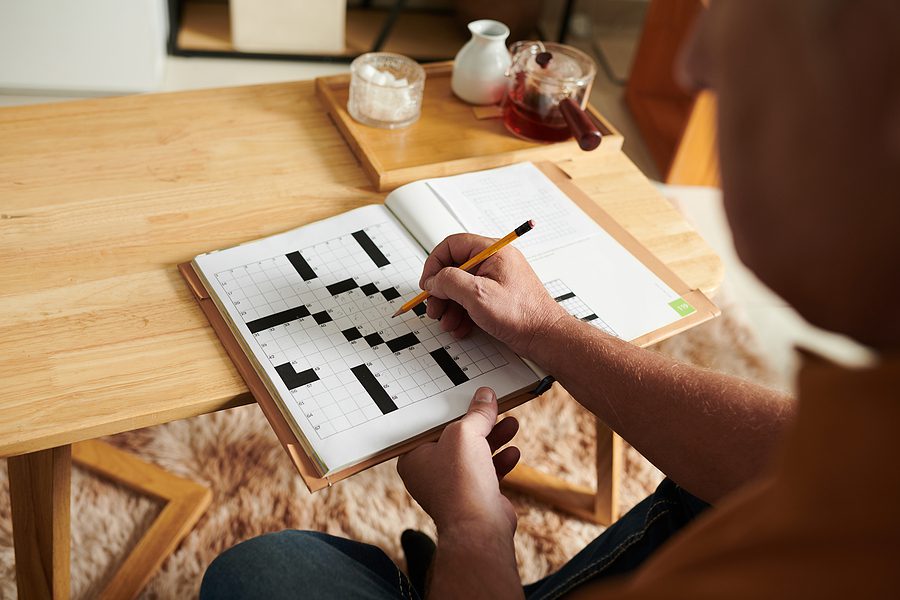After surviving a stroke, it can sometimes be difficult to connect words or memories. And for some, it can be even harder to articulate those thoughts. However, stimulating the mind through games can be a good way to help your loved ones recover more effectively. This article will discuss different types of games, and how they can help your loved one recover from their stroke.
Word Puzzles
Word searches and crossword puzzles help stimulate the mind and help the brain connect the dots between certain words. After a stroke, it can be hard for individuals to find the right words because their brain is trying to rebuild the connections to them. Word games help restore their vocabulary and can allow them to rebuild access to certain words.
Trivia Board Games
Trivia games help stimulate memory. Trying to recall facts, and then trying to communicate them properly, can be difficult for a stroke survivor. Trivia games help restore that memory connection. Trivia games can be fun to play in groups. They can be good learning experiences for younger family members, while also helping the stroke survivor. Plan a family game night, and play a trivia game together.
Puzzles
Generally, puzzles stimulate the brain and use a combination of different critical thinking skills to solve. There is also a tactile element to puzzles that can be important for motor skill practice after a stroke. Logic, memory, shape management, and recognition are all important aspects of solving a puzzle. Start with lower piece count puzzles, and help them work their way up.
Music-Based Games
Music plays a special role in our brains. It affects memories, moods, language skills, and more. They may associate some songs with different times in their life, or different people from their past. Consider playing games based on music. Play some popular songs, and see if your loved one can recognize the band or song. Play some of their favorites, and other popular songs from their past. Look to their CDs or records for inspiration.
Video Games
While not every elderly person can handle highly stimulating video games, try to see what they can do. Most video game controllers are ergonomic enough for elderly hands. And many can be played while seated or even laying down. Even a game on their computer can be helpful. Find a game you think they would like, and help them play. Video games stimulate different aspects of the brain. Games with good storytelling and plot can keep them engaged, and help with memory. Video games can help increase hand-eye coordination, and help stroke survivors redevelop muscular control. Don’t pick anything too violent or scary, though.
Additionally, there are many video games that offer a variety of different board game options, like chess, checkers, mancala, card games, and more. These variety of games are often cheaper than blockbuster titles and can provide a bevy of options for your loved one to play. Many of these can be played with a computer or with others.
Safe Harbor Healthcare Services does not provide medical, healthcare, or financial advice via articles. This material has been prepared for informational purposes only. It is not intended to provide, and should not be relied on for medical advice.
Safe Harbor Healthcare Services has been providing excellent home care on Staten Island since 1967. Our services help the elderly and disabled live safely and independently; while giving their families the peace of mind they need. For more information contact us by clicking here, or by calling (718)-979-6900.

